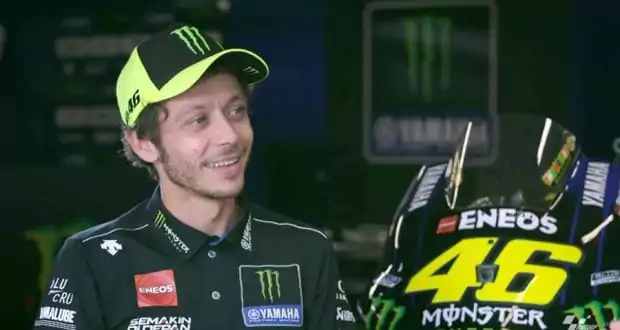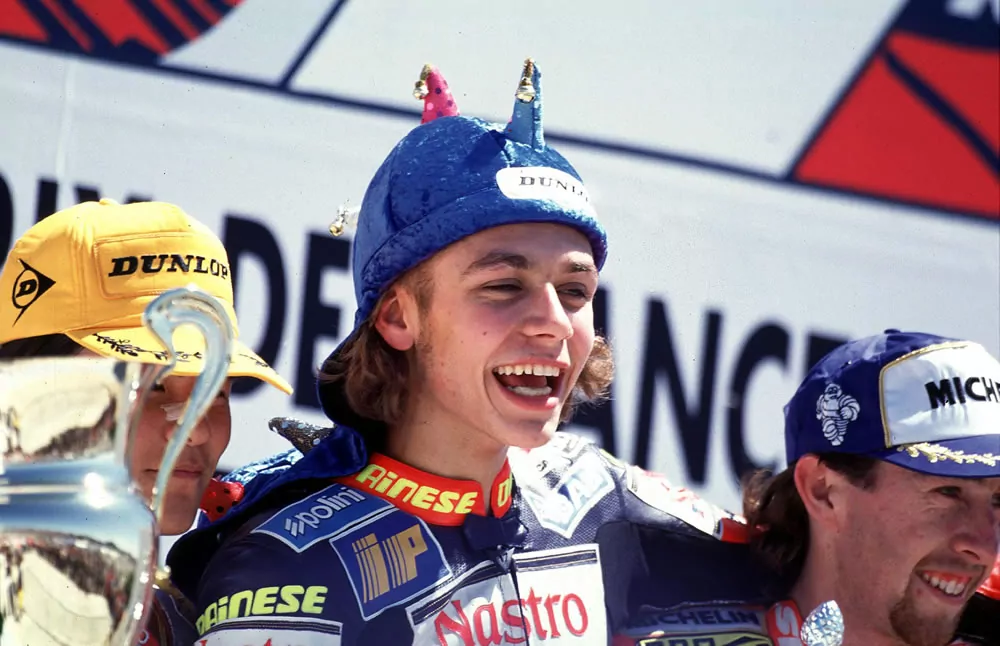This weekend at Phillip Island will be Valentino Rossi’s 400th MotoGP race. The Australian circuit has been a favorite for Rossi over the past two and a half decades as he’s won eight victories on the island over his career, more than any other MotoGP racer. Rossi has been on the podium 15 times at Phillip Island which is also a record. The MotoGP community has high hopes for Rossi, who’s had a disappointing season so far, to finish on the podium as a fitting way to celebrate his 400th race, and Matthew Brit conducted this twenty minute interview with The Doctor.
Note: You’ll have to use Facebook or another platform to login or create an account on MotoGP.com to watch the video, but if you can’t be bothered, below is a summary.
How has paddock life changed for you over the last 400 races?
“It’s changed a lot, unfortunately, in a bad way… For me the paddock life is finished.”
Rossi comments that at the start things were more easy, with much more room and freedom. He reflected on ripping around on pit scooters that would be modified to get more power, doing wheelies in the paddock, having a little more fun. Whereas now fans are always around and there are many more rules controlling the races. Now for Rossi, “paddock life” is being in the box or in the trailer.
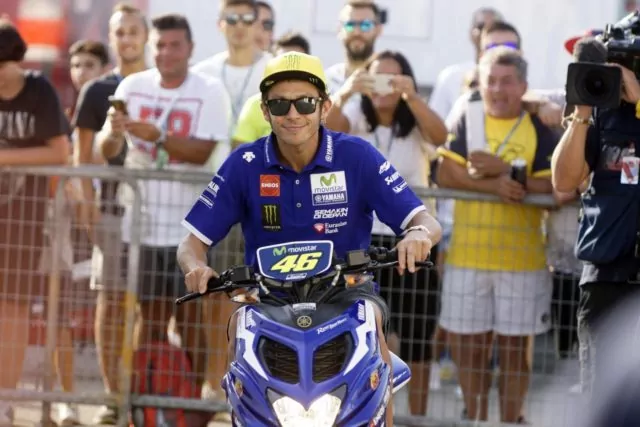
There’s been a lot more TV exposure since 1996, and an explosion of social media coverage. How do you find it?
“Big exposure changes the life for everybody, you are always Live.”
“For the fans, it’s good!” Rossi admits. Today, if you’re a MotoGP fan, you can follow everything from Thursday afternoon until after the trophy ceremony. Back in the 1990s, you would be lucky if you got to see the race.
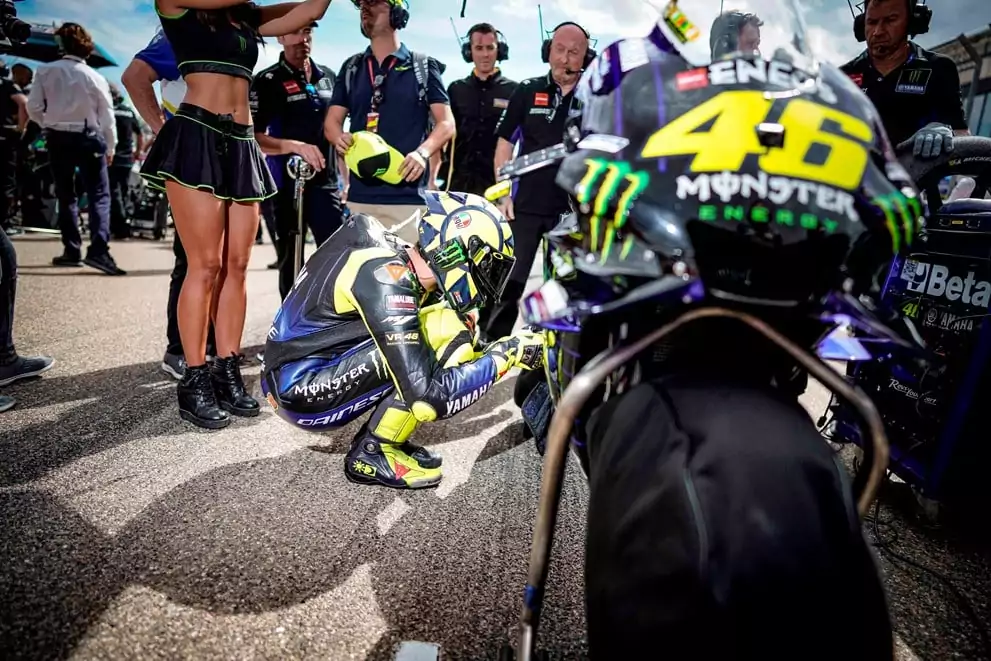
Back then, you were only known as the son of Graziano Rossi. How did you deal with that?
“You have to change (your) life, easy.”
Rossi won his first race and in his second year became World Champion. It was a surprise to everyone, but “it was like a bomb in Italy” Valentino explains. That’s come with both pros and cons. Going to motorcycle shops and not having to wait for service, or having the shops closed for you, but it wasn’t always easy. Rossi comments on being a teenager, trying to go to the movies or hanging out with friends, and people wanting to stop him in the streets.
His solution was to stay close to home. The people got used to seeing him around, so they left him alone. “But if I move 20 kilometers away, it’s different.”
How do you stay in the competition and how have you seen the riders change over the years?
“The next generation is always stronger … I come from an era where the riders still drink beer and smoke cigarettes.”
Rossi speaks to the changes in the motorcycles over the years, from the 500cc bikes in 2001, to today’s MotoGP machines. He points out that even the 2005 motorcycles are nothing like those of 2019, with so much more power and so many more sensors. The goal remains the same however: pushing every motorcycle to it’s limit.
Rossi also notes that the machines themselves are only one half of the equation. It’s not just the bikes that change, but what Rossi refers to as “the evolution of the species.” Motorcycle racers are becoming more professional, and more athletic. The physical demands of racing are much more than they used to be. Today’s racers eat healthy, train daily, don’t drink, don’t smoke, and go to bed early.
The use of technology has also changed the game in which rider and motorcycles play. Preparation is crucial, and it’s not double, but ten times more than what racers were doing in 2003. Every team has cameras and videos in every corner, so each rider knows not just how they handle corners, and how their team mates handle corners, but even how the competition handles them.
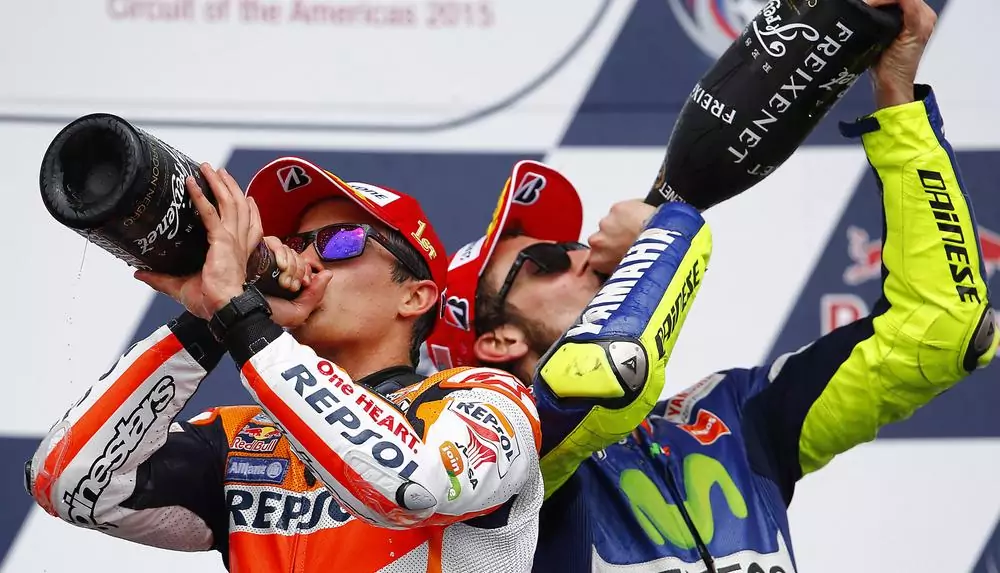
You’re not just a racer anymore, but an entrepreneur and a mentor. How much has that changed?
“For us, motorcycle racing is a great passion.”
Rossi reflects on getting older (he turned forty earlier this season), and wanting to find the best ways to stay in the business. It leads you to doing things you would have thought unimaginable ten years earlier. Rossi’s VR46 academy is helping to drive the next generation of young Italian racers, like Franco Morbidelli, who is starting to finish ahead of Rossi as of late. “What I like a lot, is trying to help the young riders.” says Rossi.
If you can relive one race again, what would it be?
“Phillip Island 2003 on the 5 cylinder Honda.”
In MotoGP, there are often fractions of seconds separating race finishes. A ten second penalty is a hard blow. Anyway, to make a long story short, Rossi, gets the notification from his team about the ten second penalty. He then proceeded to put down one hot lap after another, and finished the race a jaw-dropping 15 seconds ahead of Loris Capirossi who took second. Even with the ten second penalty, Rossi won the race with a whooping 5 second lead.
“This is the key. This is the secret. A lot of people say to me, “what’s your secret?” For me, it’s just the passion for motorcycles.” says Rossi. “It was a special day.”
You can check out the full interview here.
 YouMotorcycle Motorcycle Blog – Motorcycle Lifestyle Blog, MotoVlog, Motorcycle Reviews, News, & How-Tos
YouMotorcycle Motorcycle Blog – Motorcycle Lifestyle Blog, MotoVlog, Motorcycle Reviews, News, & How-Tos
